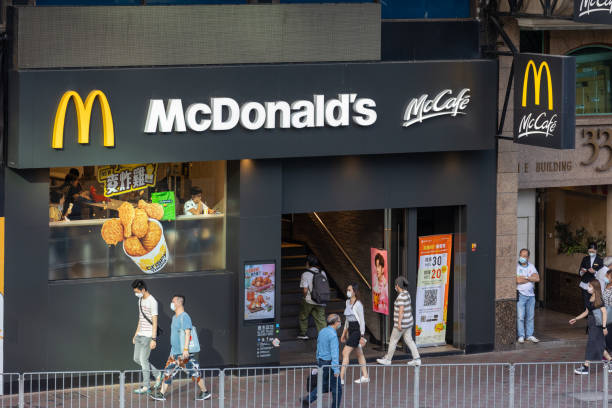
As a global leader in the fast-food industry, McDonald’s recognizes the critical importance of sustainability. The company has set ambitious long-term sustainability goals to reduce its environmental impact, promote responsible sourcing, and support communities. This article explores McDonald’s comprehensive strategy for achieving a greener future.
Reducing Carbon Footprint
Greenhouse Gas Emissions
One of McDonald’s primary sustainability goals is to reduce greenhouse gas emissions across its operations and supply chain. The company aims to align with the Paris Agreement’s target to limit global warming to below 2 degrees Celsius.
Key Initiatives:
- Science-Based Targets: McDonald’s has set science-based targets to reduce greenhouse gas emissions by 36% by 2030 from a 2015 baseline.
- Renewable Energy: Increasing the use of renewable energy in restaurants and across the supply chain.
- Energy Efficiency: Investing in energy-efficient equipment and practices to reduce overall energy consumption.
Sustainable Sourcing
Responsible Sourcing Practices
McDonald’s is committed to sourcing its ingredients responsibly to minimize environmental impact and promote sustainability throughout its supply chain.
Sourcing Goals:
- Beef Sustainability: Partnering with beef suppliers to ensure sustainable farming practices and reduce deforestation.
- Cage-Free Eggs: Committing to sourcing 100% cage-free eggs by 2025 globally.
- Sustainable Fish: Ensuring all fish served is certified by the Marine Stewardship Council (MSC).
Agriculture and Forestry
To further its sustainability efforts, McDonald’s focuses on promoting sustainable agriculture and forestry practices.
Initiatives:
- Soy and Palm Oil: Sourcing soy and palm oil from suppliers who adhere to sustainable and deforestation-free practices.
- Support for Farmers: Providing resources and support to farmers to adopt sustainable practices and improve livelihoods.
Waste Reduction and Recycling
Packaging and Waste Management
McDonald’s has set ambitious goals to reduce packaging waste and increase recycling rates in its restaurants.
Waste Reduction Goals:
- Recyclable Packaging: Committing to using 100% recyclable, compostable, or renewable packaging by 2025.
- Waste Diversion: Implementing waste diversion programs to reduce landfill waste and promote recycling.
- Plastic Reduction: Phasing out single-use plastics, such as straws and cutlery, and replacing them with sustainable alternatives.
Circular Economy
McDonald’s is working towards a circular economy model where resources are reused and recycled, minimizing waste and environmental impact.
Circular Initiatives:
- Reusable Packaging: Exploring options for reusable packaging to reduce single-use waste.
- Partnerships: Collaborating with industry partners to develop and implement circular economy practices.
Water Conservation
Efficient Water Use
Water is a vital resource, and McDonald’s is committed to using it efficiently throughout its operations.
Water Conservation Strategies:
- Water-Efficient Equipment: Installing water-efficient equipment in restaurants to reduce water usage.
- Sustainable Agriculture: Encouraging suppliers to adopt water-efficient practices in farming.
- Water Stewardship: Supporting water stewardship initiatives in communities where McDonald’s operates.
Community and Employee Engagement
Community Support
McDonald’s believes in giving back to the communities it serves and supports various initiatives to promote social and environmental well-being.
Community Initiatives:
- Ronald McDonald House Charities: Supporting families in need through housing, healthcare, and educational programs.
- Local Sourcing: Partnering with local suppliers to boost local economies and reduce transportation emissions.
Employee Involvement
Engaging employees in sustainability efforts is crucial for achieving McDonald’s long-term goals.
Employee Programs:
- Sustainability Training: Providing training programs to educate employees on sustainable practices and encourage their participation.
- Green Teams: Establishing Green Teams in restaurants to lead sustainability initiatives and promote environmental awareness.
FAQs
What are McDonald’s long-term sustainability goals?
McDonald’s long-term sustainability goals include reducing greenhouse gas emissions, sourcing ingredients responsibly, reducing packaging waste, promoting recycling, conserving water, and supporting community initiatives.
How is McDonald’s reducing its carbon footprint?
McDonald’s is reducing its carbon footprint by setting science-based targets for greenhouse gas emissions, increasing the use of renewable energy, and investing in energy-efficient equipment and practices.
What sustainable sourcing practices is McDonald’s implementing?
McDonald’s sustainable sourcing practices include partnering with suppliers for sustainable beef, sourcing 100% cage-free eggs by 2025, ensuring all fish is MSC certified, and promoting sustainable agriculture and forestry practices.
How is McDonald’s addressing packaging waste?
McDonald’s is addressing packaging waste by committing to using 100% recyclable, compostable, or renewable packaging by 2025, implementing waste diversion programs, and phasing out single-use plastics.
What water conservation efforts is McDonald’s undertaking?
McDonald’s water conservation efforts include installing water-efficient equipment, encouraging sustainable farming practices, and supporting water stewardship initiatives in local communities.
Conclusion
McDonald’s long-term sustainability goals reflect its commitment to a greener future. By focusing on reducing greenhouse gas emissions, promoting responsible sourcing, reducing waste, conserving water, and engaging with communities and employees, McDonald’s aims to significantly minimize its environmental impact. These efforts demonstrate McDonald’s dedication to sustainability and its role in driving positive change in the fast-food industry and beyond.